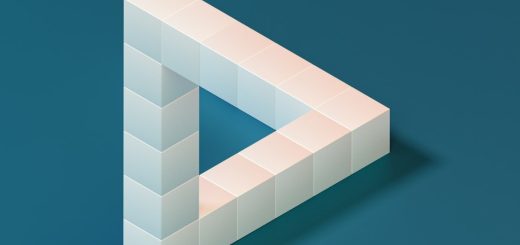Redesigning Your Life’s Interface
If you’ve ever tried to use a smart phone, or a website, you’re using a user interface. If done well, this interface has been designed to help you do what you want: check your messages, read an article, find information, get stuff done.
Our lives have interfaces too. We just don’t often think about it.
And just like with badly designed websites, a bad interface for your life can be frustrating, grating, full of friction and confusion.
The good news is … you’re the interface designer of your life! You can redesign the interface.
Let’s think about a few examples:
Life’s popup boxes: When you work, are there a dozen things trying to get your attention? Email, phone messages, social media, blogs, news, other favorite websites … while you’re trying to get an important task done? These are like popup boxes asking you to subscribe, that get in the way of your reading. You can redesign it so that you have only the task in front of you, no popups or distractions. Simplify the steps: If you want to work out regularly, how many steps does it take before you can actually do the first exercise? For many people, they have to get their gym clothes together into a bag, close down a computer, drive to a gym, check into the gym, change, find an available spot in the gym, then do the workout. That’s like if you wanted to send an email message but had to click through seven different pages to get to the send message screen. Instead, think about simplifying it so you can get right to the task — get down on the floor and do some pushups and planks, have a chinup bar near your bathroom so you can do some every time you pass, go outside during a work break and walk quickly for 10 minutes, several times a day. You can look at other things in your life that take too many steps to accomplish a goal, and remove steps. Annoying ads or sales pitches. How often have you been on a site with annoying ads, or constant sales pitches from the blogger? You just want to read or get stuff done without all the pitches. The same is true of your regular life — you don’t want people walking into your office giving you sales pitches, nor do you want to hear or see ads in your radio or TV or magazines. Consider “ad-blocking” your life, by finding ways to avoid sales meetings, people who are soliciting, meetings where someone is trying to pitch you. Pay for ad-free music streaming and video, stop buying magazines (just read articles using read-later services that strip out ads), unsubscribe from ads disguised as newsletters in your inbox. Unfriend people who are trying to get you into multi-level marketing and the like. Make your important goals be easy to find. One frustration on websites is when the thing that matters most is buried in a hard-to-find page, not easy to find. With a good user interface, the most important goals are front and center, obvious and easy. But in our lives, we make the least important things easiest to find and do (TV, Facebook, distraction, junk food), while the most important things are hidden behind layers of distraction (your most important project, exercise, eating healthy, spending time with loved ones). What if we put these important things in front of the rest? Bury Facebook and other distractions, and have the important project be the only thing that shows when you open your computer. Get rid of junk food and have your healthy options be out in the open for when you get hungry. Put the TV in the closet, and have dumbbells there instead. To spend time with loved ones, put the activity that you want to do with them just inside the front door when you get home — put the book you want to read with your kids, or the rollerblades you want to use with them, just inside the door. Or put the tea cups you want to use with your wife as you talk and have tea together, in the middle of the living room. Beautiful design. When an app or website looks beautiful, it’s not just for the sake of gloss and glamor. It’s to create a mood, an experience, a feeling of delight or peace. Each action with a good app or website should give you an experience you enjoy, rather than a feeling of clunkiness or frustration. The same can be true of your life — remove distraction and clutter, and find ways to bring peace and delight to your life.Obviously these are just a few examples, a few abstract ideas. The actual implementation depends on your goals, on the experience you want to create for yourself. But these are good to think about.
In truth, we can never control everything about our experience in life, nor should we try. But spending some time thinking about a smarter, simpler, more lovely interface for your life is about rethinking the unconscious, and living more consciously.


